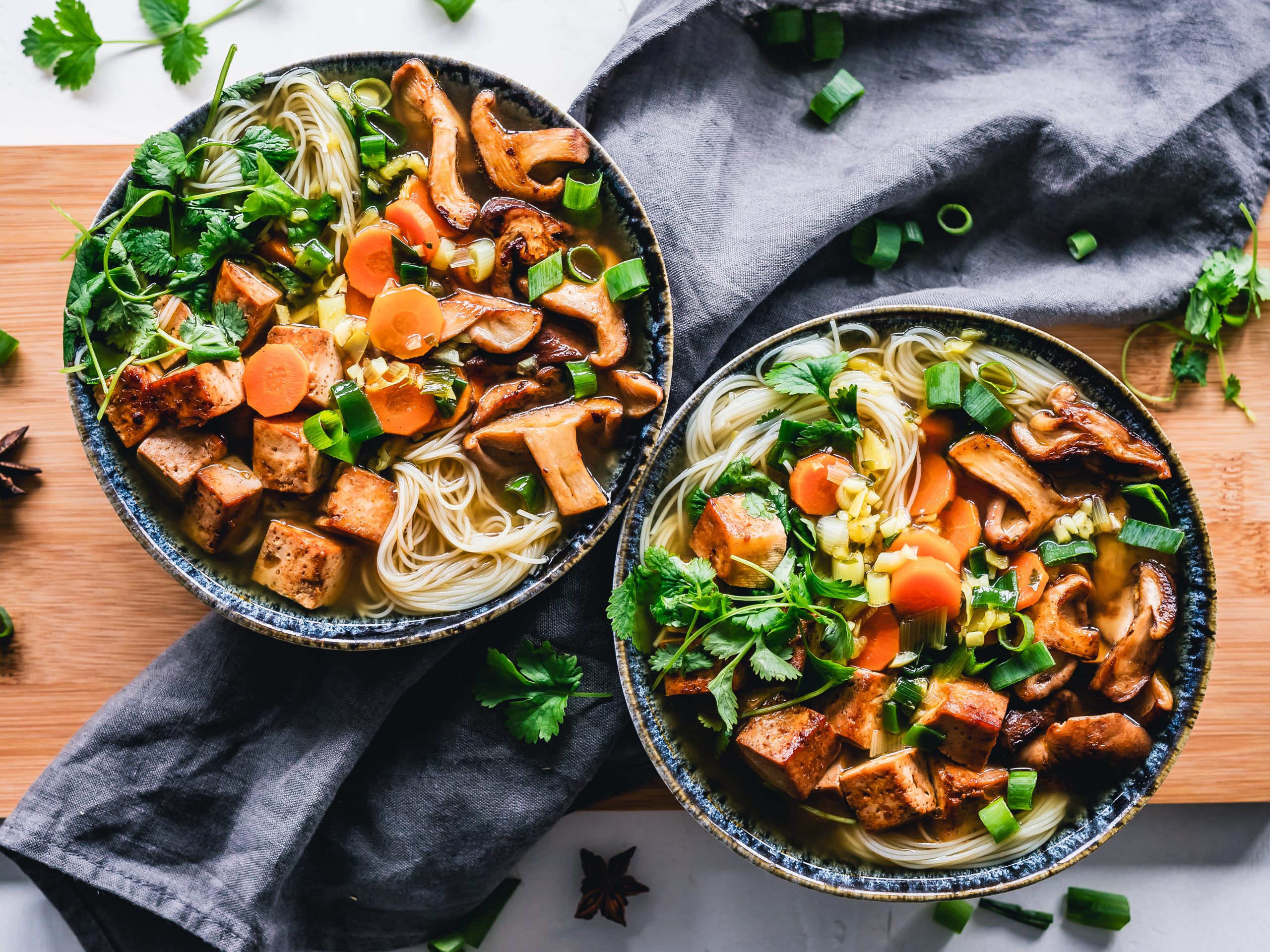When you’re working out, you naturally want to feel fit and energetic. Food provides you with the energy you need during exercise, but what is best to eat and drink before, during and after exercising? Is it necessary to eat something while exercising? And are supplements necessary? In this blog, we will tell you what’s what and give you some practical tips to help you get the best out of your sporting performance!
A HEALTHY FOUNDATION
Whatever your level or sport, a healthy foundation is always the most important thing. By eating healthily on a daily basis, you ensure that your body gets enough of all important nutrients. Good guidelines for this are:
• At least 250g of vegetables daily
• Daily 2 portions of fruit (200g)
• Choose mainly whole-grain cereals
• Choose legumes, nuts and fish regularly
• Eat less processed or red meat
• Choose mainly unprocessed food
• Watch your salt intake
• Preferably drink water, tea, or coffee without sugar
If you exercise 2 or more times a week, it is good to take this into account in your diet. You will need more energy and fluids. It is also essential to watch your carbohydrate and protein intake. The best way to do this is explained below.

EATING BEFORE EXERCISE
Before exercising, you want to replenish your energy stores as much as possible. You can achieve this by eating a good meal 2-3 hours before exercising. This will give your body enough time to absorb the energy.
Carbohydrates
Carbohydrates are your body’s main fuel during exercise. Your body can convert the carbohydrates you get through your diet into glycogen, which it then stores in your muscles and liver (=fuel tank). By eating enough carbohydrates before exercising, you ensure that your body’s carbohydrate stores are filled to the maximum.
Meal 2-3 hours before exercise
So, make sure that the meal you eat 2-3 hours before exercise consists mainly of carbohydrates, supplemented with proteins and healthy fats. Below are some examples of good meals to eat 2-3 hours before exercise:
• Sandwiches with egg, peanut butter, or hummus
• Pasta with tomato sauce
• Oatmeal with fruit
• Rice with chicken or tofu
It is also important to drink enough before exercising. Try to drink about half a liter (500 ml) of liquid at meals.
Snack just before exercise
Just before exercising, it is better not to eat a large meal. Exercising on a full stomach can cause gastrointestinal problems. If you still feel hungry just before exercising, you can choose a small, easily digestible snack that contains mainly carbohydrates, such as:
• Banana
• Dried fruit, such as dates or sultanas
• Sandwich with fruit spread
• Rice or corn waffles
Exercising on an empty stomach
Exercising on an empty stomach is a popular topic these days. However, we do not recommend it. When you don’t eat prior to exercising, you have less energy available during exercise, and your carbohydrate stores are not maximally filled. This can cause you to not give your all during exercise, especially when you exercise more intensively. If you do enjoy exercising on an empty stomach, that is fine. Keep in mind that you might be tired a little faster, and make sure you eat enough afterward.
EATING DURING EXERCISE
If you exercise for less than 1.5 hours, it is usually unnecessary to eat anything during exercise. Just drinking water is enough.
Do you exercise for more than 1.5 hours? Then it is advisable to take extra carbohydrates while exercising (4). Choose something easily digestible, low in fiber and fat so that your body can absorb the carbohydrates quickly. Good options include:
• Banana
• Dates
• Isotonic sports drink
• Energy gel
• (Homemade) rice cake

Drinking During exercise
You lose extra fluids by sweating. It is, therefore, important to keep drinking well during exercise, especially if you exercise for longer than 1 hour. After exercise, you can check whether you have drunk enough by looking at the color of your urine. Is it very dark? Then, this is a sign that you should drink more next time.
EATING AFTER EXERCISE
Try to eat a good meal within a few hours of exercising. This could be your lunch or dinner, for example. When doing so, make sure the meal contains a combination of:
• Carbohydrates (e.g., pasta, rice, potato)
• Proteins (e.g., chicken, egg, tofu, pulses)
• Healthy fats (e.g., olive oil, nuts, avocado)
• Vegetables (important for vitamins and minerals)
Carbohydrates
Eating carbohydrates after exercise ensures that the glycogen stores in your muscles and liver are replenished (2). This way, your body will also have enough energy available for the next workout.
Proteins
Proteins are important for recovering and building your muscles after exercise. Try to get around 20-40g of protein after a workout (2). Also, during the rest of the day, it is good to make sure to eat something protein every 3-4 hours.
Tip: For example, have our delicious Protein smoothie with 19g of protein per bottle with your breakfast or lunch!

Proteins before sleeping
Before sleeping, you can choose to eat another bowl of quark (250g) to support your muscle recovery during the night. Quark contains specific proteins (casein proteins) that your body absorbs slowly.
DO YOU NEED SUPPLEMENTS?
Basically, a healthy basic diet is sufficient, and you do not need extra food supplements (3). When you eat a healthy and varied diet, you get enough of all vitamins and minerals. Tip: Juices and shots from Sapje can make a nice contribution to your daily intake of healthy nutrients! However, you might consider taking a vitamin D supplement during the dark autumn and winter months. In addition, the advice is to take a vitamin B12 supplement if you eat vegan (5).
CONCLUSION
In the end, a healthy base is always the most important thing for good sports performance. In addition, if you exercise several times a week, you can pay attention to the amount of carbohydrates and proteins you take in to give extra support to your energy levels and muscle recovery. But also remember: everyone is different. The above are only guidelines. Test for yourself what works and feels right for you. After all, that is the most important thing!
Sources:
- Gezondheidsraad. (2015). Richtlijnen goede voeding 2015.
- Kerksick, C. M., Arent, S., Schoenfeld, B. J., Stout, J. R., Campbell, B., Wilborn, C. D., … & Antonio, J. (2017). International Society of Sports Nutrition position stand: nutrient timing. Journal of the international society of sports nutrition, 14(1), 33.
- Voedingscentrum (jaartal onbekend), Planning: eten en drinken rond het sporten. Geraadpleegd op 12 december 2022. https://www.voedingscentrum.nl/nl/thema/eten-bij-sport-en-beweging/planning-eten-en-drinken-rond-sportmomenten.aspx
- Burke, L. M., Hawley, J. A., Wong, S. H., & Jeukendrup, A. E. (2011). Carbohydrates for training and competition. Journal of sports sciences, 29(sup1), S17-S27.
- Voedingscentrum (jaartal onbekend), Vitamine B12 (cobalamine). Geraadpleegd op 15 december 2022. https://www.voedingscentrum.nl/encyclopedie/vitamine-b12.aspx

